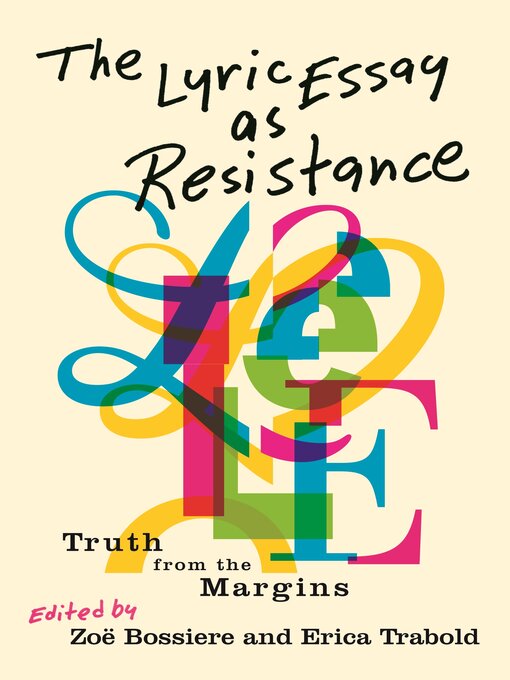Resistance and representation manifests in the subversive genre of the lyric essay.
Winner of the Midwest Book Award!
Lyric essayists draw on memoir, poetry, and prose to push against the arbitrary genre restrictions in creative nonfiction, opening up space not only for new forms of writing, but also new voices and a new literary canon. This anthology features some of the best lyric essays published in the last several years by prominent and emerging writers. Editors Zoë Bossiere and Erica Trabold situate this anthology within the ongoing work of resistance—to genre convention, literary tradition, and the confines of dominant-culture spaces. As sites of resistance, these essays are diverse and include investigations into deeply personal and political topics such as queer and trans identity, the American BIPOC experience, reproductive justice, belonging, grief, and more.
The lyric essay is always surprising; it is bold, unbound, and free. This collection highlights the lyric essay's natural capacity for representation and resistance and celebrates the form as a subversive genre that offers a mode of expression for marginalized voices. The Lyric Essay as Resistance features contemporary work by essayists including Melissa Febos, Wendy S. Walters, Torrey Peters, Jenny Boully, Crystal Wilkinson, Elissa Washuta, Lillian-Yvonne Bertram, and many more. Their work demonstrates the power of the lyric essay to bring about change, both on the page and in our communities.

